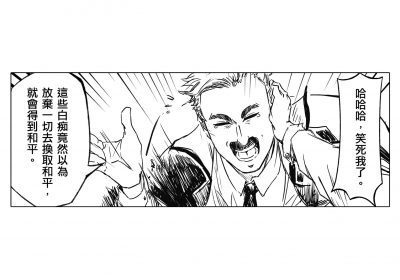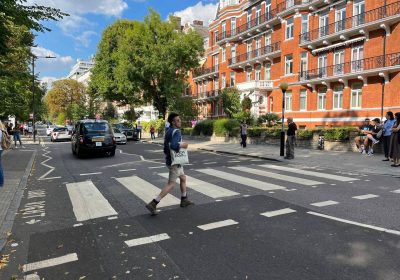
I was focusing on completing my doctoral thesis over the past few years and largely put aside one of my greatest passions – conducting a symphony orchestra. I missed the days when I could make music with fellow musicians, collaborate on projects and discover new repertoire together.
In December 2022, an amateur orchestra in England was scheduled to perform Bruckner’s Symphony No. 8. This is a monumental and fiercely difficult work that normally only professional orchestras would tackle. I was intrigued by this ambitious programming and went along to the concert. Contrary to my expectations, the concert was superb. The 98 musicians on stage interpreted the profundity and sophistication of the work perfectly and also performed in a convincing and thorough manner. I left that concert nodding in approval and wished one day I would have the opportunity to conduct a symphonic work of this magnitude.
The very next day, the orchestra announced on its website that it would be looking for a new Principal Conductor. Interested musicians should apply and, if they were considered to be qualified enough, would be invited to an audition, conducting a movement from Bruckner’s Symphony No. 8.
In my previous article, I wrote about my late conducting mentor, Maestro Colin Touchin, who encouraged me to attend as many auditions as possible. For him, even if I did not succeed in securing the post, I would still be able to benefit from the experience, expand my musical horizon as well as realise my weaknesses and limitations.
I submitted an application and was thrilled to discover that I was shortlisted. My audition excerpt was to be the Finale of Bruckner’s Symphony No. 8, characterised by its solemn, majestic and belligerent nature. In addition, I was promised that the full orchestra would be present for my audition and asked to rehearse the orchestra for half an hour.
In the following fortnight, I spent hours on end studying and analysing the score in a bid to ensure that I have attained a full and comprehensive understanding of the complex orchestral score. I also thought deeply about the sounds that I wished to create and the ways in which I should interpret Bruckner’s obsessive-compulsive disorder symptoms, which were particularly evident in this symphony.
Just two days before the audition, I was feeling rather pleased with my efforts after several hours of intensive score-study. At this very moment, I received an email from the orchestra’s chairman that some players would actually not be free to attend the audition. As such, with a reduction of available instrumental forces, it was decided to replace Bruckner’s monumental piece with A Song of Summer, an orchestral tone poem written by the British composer Frederick Delius. I was not offered an apology but was reminded to be on time for my audition.
To say that I was disappointed and annoyed would be an understatement. All my efforts over the past two weeks have gone to waste and I had to start from scratch to prepare a piece that I neither liked nor understood. I had every intention to withdraw my candidacy, feeling that this situation was somewhat a red flag that suggested it would be a nightmare to work with this orchestra’s executive committee in the future. Nevertheless, as the old saying goes, no experience is bad experience. Why not go ahead and attend the audition anyway? Maybe I would learn something new and even appreciate Delius’ music!
On the day of the audition, I arrived at the concert hall half an hour before my audition time. Having realized that I would be the first candidate, I had a bit of chitchat with a handful of musicians, discussing important issues from the weather to train delays and even the impending World Cup Final. Suddenly, the orchestra’s chairman appeared out of nowhere and informed me curtly that in front of me were all the musicians available that day.
I was stunned and speechless. While I knew that there would not be a full orchestra of 98 people, I was still expecting a substantial ensemble of some 40 musicians, which was the standard for Delius’ work. Among the musicians present, there were just three violins, one viola, one cello, three French horns and one trombone. All of the woodwinds, which were the protagonists of the piece, were absent. I was unable to hide my discouragement and only half-heartedly conducted the ‘orchestra’ in front of me. I could not work on my ideas, refine ensemble playing, or address simple issues such as dynamics, phrasing and articulation. I was relieved, perhaps even delighted, when the 30 minutes of my audition were up. I hastily collected my belongings, thanked the musicians for turning up and re-immersed myself into the snowstorm outside.
Imagine my surprise when, three days later, I received an email from the orchestra’s executive committee congratulating me on winning the audition. Not appreciating the way in which they have conducted themselves over the past several weeks, I declined accepting the position, fearing that further conflicts would arise as time goes by. Furthermore, I felt very uneasy being chosen by just 11 players in a 98-strong orchestra. Not only was this undemocratic and unrepresentative, it would also make it very difficult for me to build a rapport with my musicians.
I remain hopeful that one day I would get to conduct a Bruckner symphony which, for me, is the pinnacle of the orchestral repertoire.














